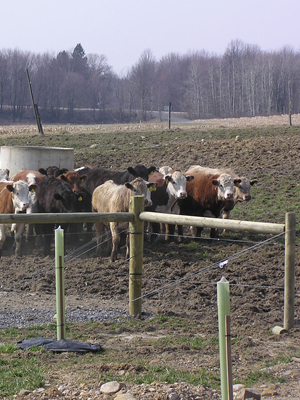Watershed Conservation
Agricultural Best Management Practices
The Conservancy’s watershed conservation program staff provides technical expertise in identifying and treating all forms of non-point source pollution, such as excess nutrients and fertilizers from agricultural operations and sediment from eroding streambanks. This type of pollution is the leading cause of water quality issues impacting our region’s waterways.
 Our trained watershed staff provides technical assistance for water quality and riparian area monitoring, macro-invertebrate sampling, habitat evaluations and monitoring protocol development. Our staff is also available to serve on steering and technical committees, and advisory boards at the local, state or federal level.
Our trained watershed staff provides technical assistance for water quality and riparian area monitoring, macro-invertebrate sampling, habitat evaluations and monitoring protocol development. Our staff is also available to serve on steering and technical committees, and advisory boards at the local, state or federal level.
Why Agricultural BMPs Are Needed
Water quality can be impacted negatively when common agricultural practices are implemented improperly. For example, when nutrients in the form of manure or commercial fertilizers are applied beyond the needs of a crop or when livestock have unrestricted access to streams, excessive nutrients and sediment can enter waterways in the form of runoff. Agricultural runoff is one of the pollution sources affecting streams in Pennsylvania. Excess nutrients and sediments are carried downstream and become a problem for not only neighbors, but also all animals that depend on streams for food, water and habitat.
How We Can Help
The watershed conservation program has certified nutrient management specialists on staff. Our team can meet with agricultural operators about installing best management practices (BMPs) that not only improve and protect water quality around agricultural operations, but may also save a landowner time and money. We can help landowners with improvements to livestock infrastructure and the reduction of offsite fertilizer needs.
For More Information:
Watershed Conservation Program
Western Pennsylvania Conservancy
1067 Philadelphia Street, Suite 101
Indiana, PA 15701
